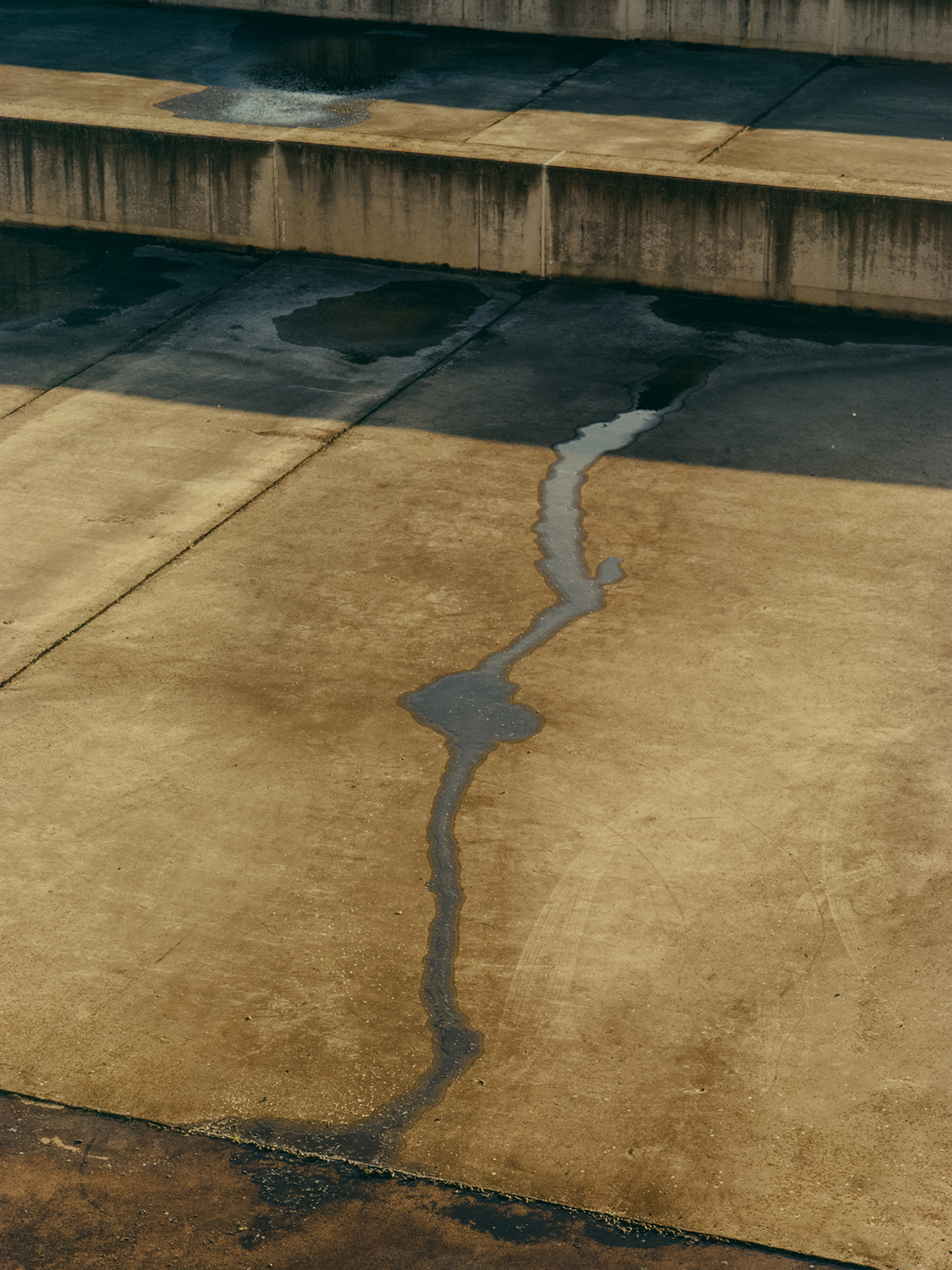breach of realms
Roxana Rios
Nominated by
Roxana Rios

Breach of realms establishes a direct link to the work “Let's Take Back Our Space - ‘female’ and ‘male’ body language as a consequence of patriarchal power relations” by Marianne Wex. Building on her feminist analysis from the 1970s, I develop contemporary counter-designs to the unequally distributed occupation of (public) space even today.
Wex's work is based on the observation of body language in public contexts and examines how male and female bodies function as expressions of power and subordination. She examines these attitudes not as biologically determined, but as the product of social norms and cultural expectations. These “gendered” postures and movements are not simply a natural phenomenon, but the result of patriarchal structures that normalize certain behaviours as “feminine” or “masculine”.
In direct reference to Wex's tableaux, the protagonists in breach of realms intentionally adopt bodily postures and occupy spaces that subvert the prescribed frameworks. By shifting and blurring the boundaries of physicality, a visual deconstruction of hierarchical structures unfolds. Through the adoption and shedding of prescribed body choreographies, participants challenge the underlying structures that shape bodies, movements, and presence. Drawing on queer theory, Breach of Realms continues anti-patriarchal struggles as an intergenerational and ongoing endeavor. In doing so, it also highlights the referencing of existing frameworks as an active and formative practice. On show at Mouches Volantes as part of Photoszene-Festival by Internationale Photoszene, Köln from 16.05 — 15.06.25
The Artist

Roxana Rios
Nominated in
2025
By
Roxana Rios
Lives and Works in
Leipzig, Germany
ROXANA RIOS *1994 (they/them) currently based in Leipzig, Germany.In 2017 Roxana picked up a double study at HGB Leipzig and AdBK Nuremberg and studied in the classes of Heidi Specker and Juergen Teller. After graduating in 2020 Roxana joined Isabel Lewis' class of the performing Arts.They received their Diploma in July 2023. Roxana's work has been shown at Museum Folkwang Essen, DEICHTORHALLEN Hamburg, Museum of Contemporary Art Leipzig, Fotomuseum Winterthur and FOTOHOF Salzburg. Roxana was nominated for the Federal Prize for Art Students in 2020 and won the Contemporary German Photography Grant in 2024
࿐
Roxana's current practice engages in critical discussions concerning the development of (hegemonial) narratives, as well as the relations between image- and knowledge-production. Roxana examines ‘the’ body as a construct, material and representative within social orders.
In this function, the work understands itself as an exercise in utopian thinking, seeing and speaking – a contribution to contemporary, social and aesthetic discourses.
More projects by this artist
2025
echo (ongoing)
echo examines relations between self-expression, attribution, and socio-cultural codes within self-portarits. Within a studio set of three synchronized cameras, distinct lines between operator, referent, and spectator dissolve. Roland Barthes' four imaginary dimensions interlink as a reflection of the cis-heterosexual matrix and gendered markers. As a trans body, I am continually navigating internalized as well as projected politics of the gaze. echo examines the role of photography in (de-)constructing traditional identity categories to develop pluralistic views of individual and collective identity.
Since its invention in the 19th century, photography has played a significant role not only as a technical medium but also as a cultural tool in the construction and representation of identity. It serves not only to document individual existences but has historically also contributed to the consolidation of social hierarchies and power structures. In particular, portrait photography established tools for exclusionary practices and actively contributed to the construction of normative social frameworks. echo is works as a critical analysis of these cultural constructions and dynamics between self- and outside perception. Barthes describes the photographic portrait as a „closed field of forces“, in which four elements operate: the self-/desired image, the external image, and the craft. This interplay makes the portrait a complex and dynamic object, reflecting both the subject's identity as well as the perceptions of the photographer and viewers. echo shifts and expands this closed field of forces, examining the images as cultural signs.
2020
FIGURE, FORM
Figure, Form is a self-determined counterpart to both artistic as well as social political discourses and understandings of "canon" and sees itself as an ongoing collection of queer/trans excellence and intelligence. Besides a practice of critical rejection, visibility and a formation of community are among the most important goals of the work.
Figure, Form treats physicality as a sovereign medium dedicated to self-realization. No distribution for the development of social gender is ascribed to the body per se, gender identity is understood as a performative practice. Thus Figure, Form tests bodily (re)conquests, inscriptions into, and queering of prevailing narratives as a point of reference for future comprehension. The project aims to understand the body as a fluid material and works for un-doings / subversion of hegemonic gazes and a reclaiming of self, body and visibility.
On show at Haus der Photographie, Deichtorhallen from 20.02.25 — 17.08.25
2025
ALIAS
Drawing from Drag looks, the collaboration ALIAS examines methods of self-presentation as fundamental techniques in the construction of gender roles.
Originating in queer subculture, Drag has a rich history stretching back to the 19th century. It plays with the interplay between self- and external perception, by staging and simultaneously questioning traditional gender roles and identities. Within this performative and at times activist framework, normative boundaries are challenged and redefined. Especially trans identities, who have always been part of drag history, profoundly rely on the analysis and mastering of these codes.
In ALIAS, the process of character-creation is deconstructed, revealing its components as fluid and interchangeable. Through the explicit de-/construction of gendered markers, fixed attributions are loosened and shifted, a physical surface is understood as a fluid potential.
"Personal identity is never identical to the external image and continua#y reinvents itself in the constant flow of redefinition." Roland Barthes. On show at Mouches Volantes as part of Photoszene-Festival by Internationale Photoszene, Köln from 16.05 — 15.06.25
Similar projects by everyone else


















































































.jpeg)




